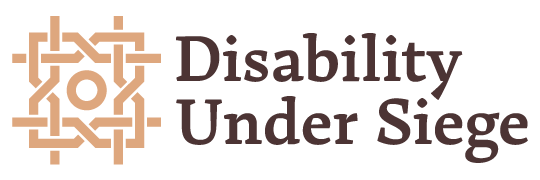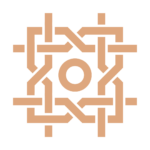Deinstitutionalisation Under Siege: A network for deinstitutionalisation of persons with disabilities in the Middle East
Background
It is estimated that up to 15% of people with disabilities live in institutional care globally – 150 million people (UN, 2018), and this is likely to be an underestimate. Empirical evidence has shown that institutionalisation results in negative outcomes for children and adults, which has been further heightened during the Covid-19 pandemic, where there were disproportionate numbers of deaths of persons with disabilities in care institutions. The issue of deinstitutionalisation is of pressing global importance as highlighted at the Global Disability Summit 2022. The proposed network, ‘Deinstitutionalisation Under Siege’, a network on deinstitutionalisation for people with disabilities in Lebanon and Palestine (West Bank and Gaza) is timely given the UN’s work since 2020 on developing guidelines on deinstitutionalisation for persons with disabilities.
In June 2022, a call was issued for submissions on guidelines on deinstitutionalisation including in emergencies Committee on the Rights of Persons with Disabilities, with a particular interest in obtaining evidence from persons with disabilities through representative civil society organisations. There is, however, a tension between the international impetus to deinstitutionalise and insufficient infrastructure within communities, particularly in Global South contexts, to support people with disabilities remaining with their families and living in communities. Our proposed network is unique and innovative in that it will use creative arts and humanities methods to capture lived experiences and views on disability, and leverage a range of existing international partnerships, whilst building new ones with specific expertise on deinstitutionalisation, and collecting data in an under-researched but highly significant and timely topic.
Project Team
This proposed network will be led by Professor Dina Kiwan (University of Birmingham, UK) in conjunction with Centre for Lebanese Studies (Dr. Maha Shuayb), Birzeit University (Professor Rita Giacaman) and Islamic University of Gaza (Dr. Nazmi al-Masri) which will build on the work of our current AHRC GCRF Network ‘Disability Under Siege’ (DUS), funded by the AHRC (£2M; 2020-2024), where we are addressing the challenge that most children with disabilities in the region never go to school. This new network’s added value is to focus specifically on the topic of deinstitutionalisation, bringing in additional specialist project partners with expertise in this area. It is anticipated that the network will be made up of a range of stakeholders, enabling dialogue between policymakers including, UN organisations, disability activists and NGOs, people with disabilities, family members, and institutions themselves.
Project Partners include; Narrative 4 (Prof. Ruth Gilligan, UK), a global not-for-profit organisation founded by writers and activists who use a methodology called the ‘Story Exchange’ aims to empower marginalised groups, young people and civic communities to have their voices heard and perspectives understood; A. M. Qattan Foundation (Ms. Fida Touma, Director-General, Palestine/UK) is a globally recognised developmental organisation in the Middle East working in the fields of culture and education in Palestine and Lebanon. Its approach is participatory with a focus on social justice, creativity and alternative knowledge production. A. M. Qattan Foundation will lead on facilitating access to cultural institutions given its particular strengths in collaborations and outreach with a wide range of institutions, academics, activists, artists, and marginalised groups that aim to produce alternative knowledge, with a biennial programme linking London, Beirut, Ramallah and Gaza, and also ‘Qtours’, visits aimed to promote access to art with the general public. The disability-led organisation, the Palestine Disability Coalition (Ms Shatha Abu Srour) will also be a key project partner; this coalition was established in 2017, consisting of 28 organisations, with 14 DPOs in Gaza, and 9 DPOs in the West Bank. Additionally, the European Network for Independent Living (ENIL) who have led work on deinstitutionalisation in Europe, as well as the Youth Association for the Blind in Lebanon are also project partners. The United Nations Economic and Social Commission of Western Asia (ESCWA) have led work on deinstitutionalisation in the region and have agreed in principle to join the network as a project partner, with this currently being approved by senior management. Media and UN impact work will be sub-contracted to Action on Armed Violence (London; Mr Iain Overton, Executive Director and an award- winning journalist, author and documentary filmmaker), a world-leading UK-registered charity that carries out research and advocacy to reduce the incidence and impact of global armed violence, with a focus on the impact of key institutional sites such as schools, hospitals and residential institutions. It works to effect impact through its close working relationships with the UN, journalists and media outlets.
Objectives
- To develop innovative, equitable and sustainable partnerships on deinstitutionalisation through regional and global networking, information-sharing and influencing regional and international agendas;
- To promote the participation of people with disabilities to collaboratively identify priorities for areas of work with researchers, practitioners, disability activists and policymakers;
- To mobilise arts and humanities methodologies (e.g. narrative methodologies led by our Project Partner the global organisation, Narrative4; visual arts and performance methodologies led by our Project Partner, Qattan Foundation in Palestine and Lebanon) to engage the public and other stakeholders to understand the issue of deinstitutionalisation with cultural outputs including e.g. narrative projects, short films, participant-led performance, participant-led ‘Institutional living’ exhibition and a photo competition;
- To advise UN, international systems and governments on the collection of valid and reliable statistics on institutionalisation in order to monitor and evaluate progress towards deinstitutionalisation;
- To enable researchers, practitioners and disability activists locally to generate country and region-specific knowledge on de/institutionalisation;
- To bolster the evidence base for contextualised understanding of institutionalisation, and benefits, challenges and strategies for deinstitutionalisation and transition to inclusive community-based services and support.
Timetable of activities
Phase 1 Scoping (0-3 months): i) Identifying policies, data and research on deinstitutionalisation in the Middle East; ii) Producing literature reviews; iii) Setting up network and advisory board
Phase 2 Visits and inaugural network meeting (4-5 months): i) Scoping visits to residential institutions in Lebanon and Palestine (including both West Bank and Gaza ii) Inaugural network meeting
Phase 3 Setting agendas (6-8 months): i) Monthly country-level network meetings, bi-weekly country-level meetings of core members of Co-Is and project partners; ii) Small-scale pilot projects e.g. narrative projects using Narrative’s Storytelling methodology with people with disabilities co-producing an archive; iii) Development of monitoring and evaluation framework of impact of network activities.
Phase 4 Impact and dissemination (9-12 months and beyond): i) Country-based policy workshops with co-authored policy briefs (in English and Arabic, and sign language); ii) Cultural knowledge production activities (e.g. short films, narrative projects, participant-led performance, participant-led ‘Institutional living’ exhibition, photo competition); iii) Network learning log and report; iv) Social media and media dissemination; v) peer-refereed journal articles (3); vi) End of Project Regional Conference on Deinstitutionalisation of People with Disabilities, culminating in development of international policy report culminating from North-South learning of network.
Outputs and Beneficiaries
The research will benefit a range of academic partners, across multiple disciplines as well as interdisciplinary fields whose focus is related to de-institutionalisation, conflict, disabilities and studies of the region. We anticipate the outputs of this project will inform the work of scholars in the disciplines of: Disability Studies; Development / Area studies, Human Geography (disability, development and migration); Medical humanities; Sociology (inclusion/exclusion, vulnerability, disability); Social policy (social protection, international development policy). In addition, we anticipate it to be of interest those interdisciplinary scholars in public health, psychology and psychiatry.
Using Wenger’s Theory of Change, we envisage the project delivering the following impact / outcomes that are relevant for academic audiences:
Improved theoretical understandings of disability in different geographical and socio-political contexts, including those experiencing conflict, facilitating communication between different sectors of the community (education and health).
Nuanced understanding of the complexity of social, psychological and political reasons for institutionalisation and the complexity of barriers for deinstitutionalisation; this would benefit researchers so as to prioritise strategies for deinstitutionalisation in the shorter, medium and long-term.
Development of arts and humanities methodologies to enable public engagement and dialogue around disability and deinstitutionalisation, enabling co-production of marginalised voices including people with disabilities living in institutions.



